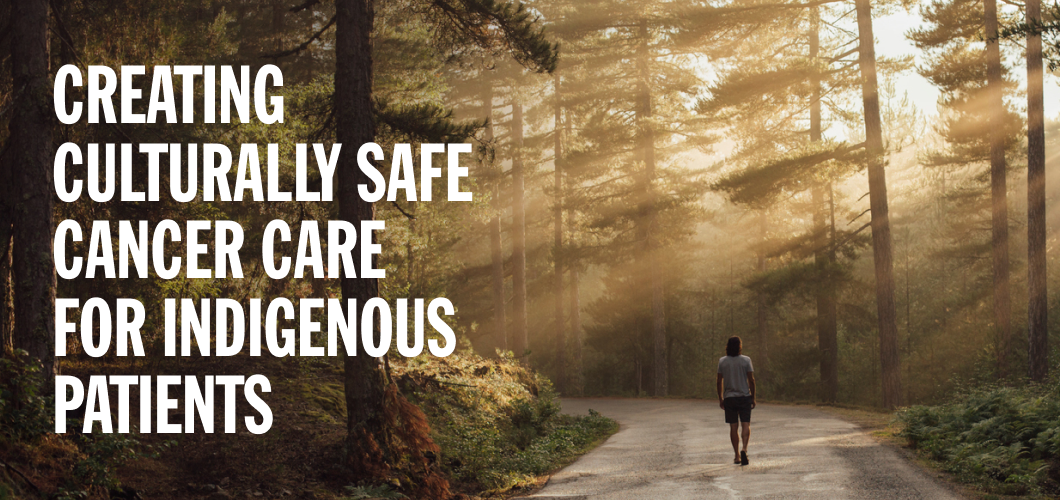When Leonard Benoit introduces himself, he begins by sharing his name in the Mi’kmaq language which translates to Circling Wolf. “I come from Miawpukek First Nation, on the territory of Newfoundland and Labrador.”
For 25 years, Leonard has been a Registered Practical Nurse (RPN). Today, he serves as the Indigenous Patient Navigator with the Toronto Regional Cancer Care Program, a role that allows him to walk alongside First Nations, Inuit, and Métis patients through one of the most difficult journeys of their lives: a cancer diagnosis.
A Different Kind of Nursing Care
As a navigator, Leonard’s work is wide-ranging. Some days, he explains complex test results in plain language. Other times, he sits quietly with patients, offers them cedar tea, or ensures access to traditional medicines and ceremony. At end of life, he helps families plan whether that means regalia for burial, a smudging ceremony, or a return to the land.
“Most of the work I do is about creating safety,” he says. “Sometimes patients will say things to me they wouldn’t share with their own families. I give them space to talk about death and dying, or who will speak for them when they no longer can.”
Leonard also advocates at the systems level by encouraging hospital policies that allow for smudging, ceremonial drumming, or the inclusion of traditional foods. “We have to ask: if someone wants rainbow trout [for example], how do we make that possible in a hospital setting? These things matter.”
Confronting Racism and Bias
For many Indigenous people, simply walking into a hospital is fraught with fear. Leonard notes that an estimated 80% of Indigenous patients anticipate racism before they even arrive at a hospital. Past experiences of discrimination shape how, or even if, they seek care.
“Access to care isn’t just about geography,” Leonard explains. “You could live next door to a hospital, but if your last experience was dismissive or racist, how do you ever feel safe going back?”
The stigma is real, and patients worry about being seen as “drug-seeking” or being treated as less deserving of care. Leonard’s presence helps counter those biases by ensuring Indigenous patients are heard and respected.
Success Through Ceremony and Community
When it comes to preventative care, Leonard has seen how culturally grounded approaches make a difference. For example, breast screening events led by Indigenous staff and elders are always rooted in ceremony, food, and community.
“We gather women together, explain what screening is in simple terms, and support one another. There’s always food. There’s always an elder,” Leonard says. “That approach builds trust. When people have a good experience, they’re more likely to come back, more likely to follow up and if they do get a diagnosis, they know they have someone to call.”
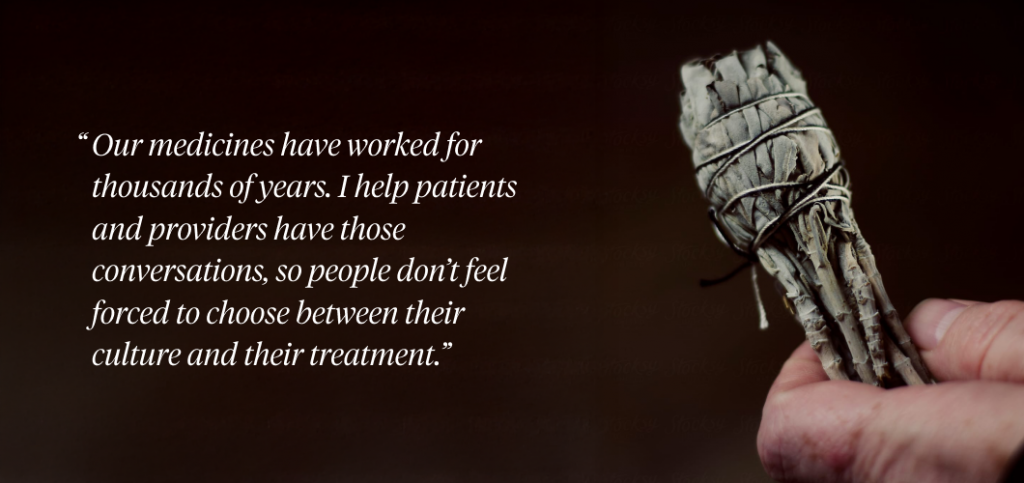
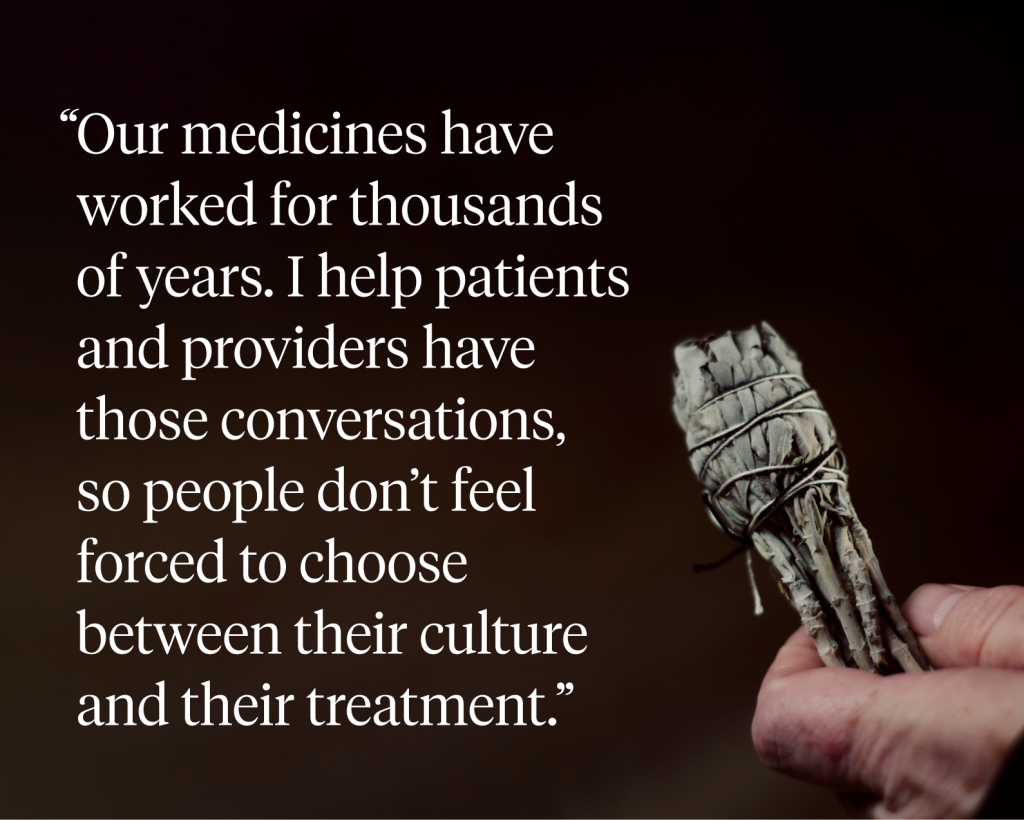
Walking Between Two Worlds
Leonard acknowledges there can be friction between Western medicine and Indigenous traditions, particularly when oncologists discourage patients from using traditional indigenous medicines. He sees part of his role as a bridge.
“[The Pharmacy Industry] was built on the backs of Indigenous medicine,” he says. “Our medicines have worked for thousands of years. I help patients and providers have those conversations, so people don’t feel forced to choose between their culture and their treatment.”
He also emphasizes the importance of spirituality in Indigenous concepts of health. “If you only treat the physical body and ignore the spiritual, there’s an imbalance. Ceremony and spirituality are central to wellness for our people.”
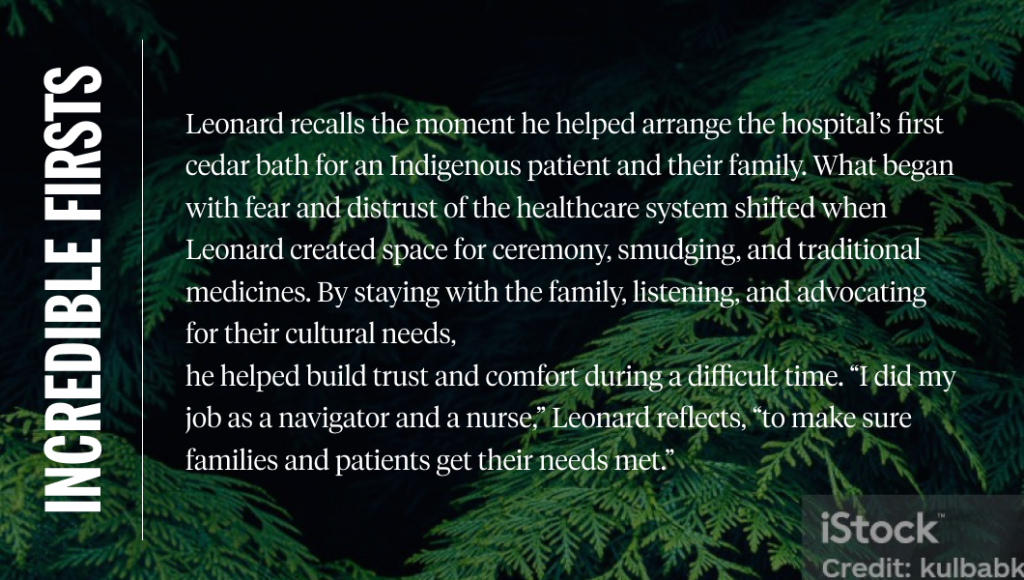
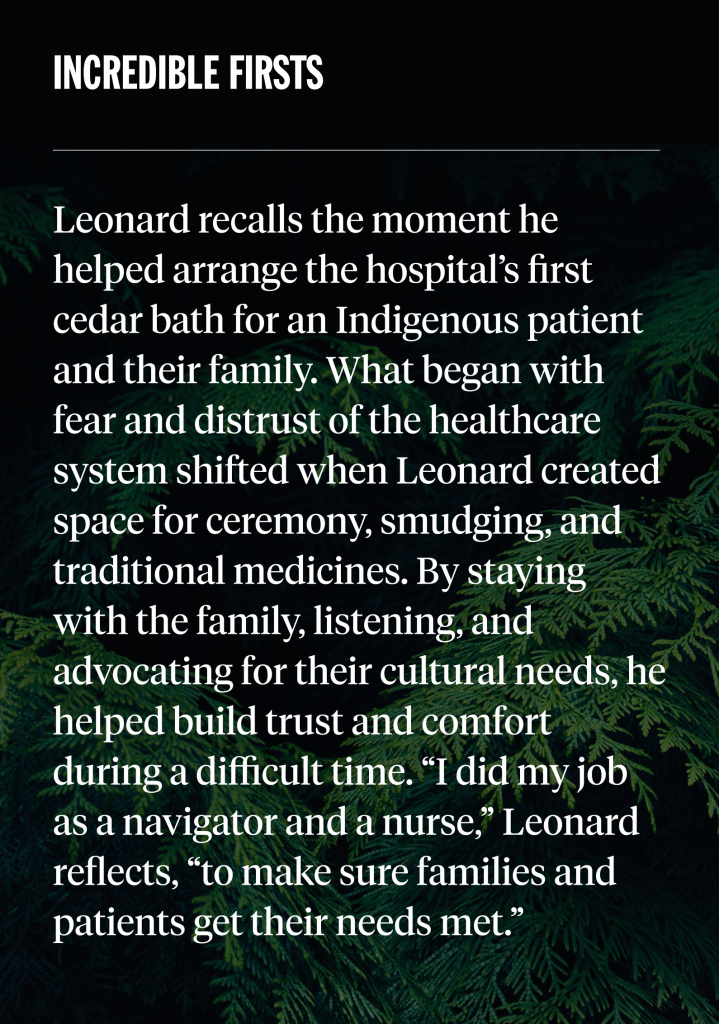
Advice for RPNs
For new RPNs caring for Indigenous patients, Leonard’s advice is simple but powerful: “Come with humility. If you don’t know something, be honest – say, I don’t know, can you tell me? Always introduce yourself, be present, and treat that person as someone’s aunt, uncle, grandmother, or child. Sometimes nursing isn’t about what we do with our heads, but what we do with our hearts.”
Building Cultural Safety Together
Leonard’s work is one example of how RPNs are leading change and creating culturally safe healthcare environments. His story underscores the importance of relationships, respect, and recognition of Indigenous knowledge in cancer care and beyond.
WeRPN is committed to supporting RPNs in this journey. Explore our Indigenous Health Equity resources which are designed to help nurses learn, reflect, and act toward creating culturally safe care for all patients.
As Leonard says, “I’m not here to do the work for patients. I’m here to do it with them. To walk alongside, so they can take ownership of their own health.”
